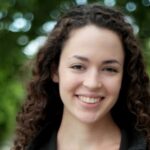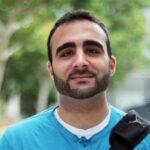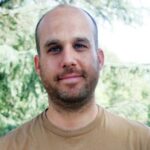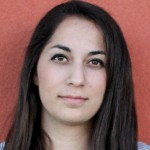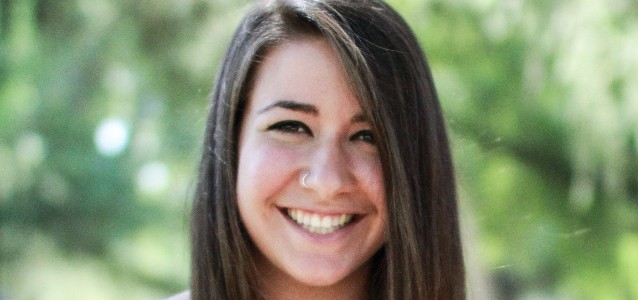As a born and bred Israeli, third-year psychology major Nitzan Bluvstein delivered heartfelt accounts of her experiences living in Israel.
“I breathe Israeli through and through,” Bluvstein said. “I grew up in an open-minded community.”
Bluvstein and her family moved to America in 2001, mainly in an attempt to distance themselves from the violence happening in their hometown.
“My parents were afraid about the future of the country,” Bluvstein said. “I had a really great childhood, but at the end of the day, you live in a warzone. It’s really frustrating trying to explain that to people that can’t relate.”
Some of the violence Bluvstein experienced targeted toward the Israeli people included the potential of unexpected explosions and suicide bombers. In her personal account at the senate meeting, Bluvstein described the feelings of being a small girl who couldn’t walk a short distance to school on her own due to the high risk of being hurt.
“When I talk about it now in America, it sounds dramatic. But, it’s a crazy reality,” Bluvstein said. “We have earthquake drills in America, but rocket drills happened in my school. I never thought about how weird that is until I had to talk about it at divestment. Normal kids don’t have to go through that.”
Through her upbringing and individual experience living in Israel, Bluvstein understands that both Israelis and Palestinian people are suffering terribly, but said that the situation is much safer now than it has been in the past.
However, despite her move to the United States, Bluvstein continued to be active in Israeli culture in high school and on campus at UC Davis.
“I wanted to be involved because I thought the bill was attacking something it shouldn’t be,” Bluvstein said. “After the first commission speech, it turned into this really heavy involvement. I was speaking a lot and I actually went through line by line of the bill, word by word. I know that bill better than I know what’s going on in most of my classes.”
Although Bluvstein knows that nothing can justify some of the human rights violations that are happening to Palestinians, she believes SR #20 is more targeted at attacking Israel than it is about working towards a noble cause.
“I couldn’t convince myself that it was about human rights. If it’s not about human rights, then what is it about?” Bluvstein said. “The bill completely polarizes the situation. In my opinion, everybody loses. Now, another community is of the opinion that our community just doesn’t care about human rights.”
Everybody losing was a common theme in this year’s anti-divestment case. Although the resolution failed in senate, Bluvstein said the word ‘win’ has been taken out of her language completely.
“Even if the vote was 12-0, we wouldn’t have won,” she said. “Divestment came, divestment hurt all of us, divestment destroyed our community and destroyed our chances of discussion with other communities.”
Prior to the bill even being brought to ASUCD this year, Bluvstein said the issue has been looming over the Israeli and Jewish communities’ heads for months.
“Divestment came whether we wanted it or not. We lost weeks ago, we knew it was coming and we had to cancel events celebrating holidays and fundraisers because we had to defend something we feel so deeply about,” Bluvstein said. “I want them to realize that I would be 100 percent okay divesting from Israel if the bill wasn’t demonizing. If we wrote a bill together to the point where my community felt safe, we would be okay with it.”
After the meeting’s outcome was stated, Bluvstein and many other members of the anti-divestment side were seen crying outside of Freeborn Hall.
“They were not tears of joy. We were glad it was over, but we also understood that while the process might be over, divestment is not over,” Bluvstein said. “It created such a mark on our campus and our lives. We were crying because we had to sit through eight hours of our opinions being demonized.”
In the end, working together as a campus community is Bluvstein’s only wish.
“Getting together and writing a co-resolution would send the greatest message,” she said. “I think movements do start in universities, and I think we should be that university. We should be the University that makes that historical point.”
RITIKA IYER can be reached at features@theaggie.org.
Photo by Jennifer Wu.
